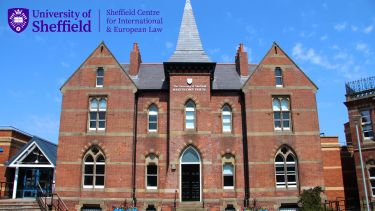Giuseppe Martinico - ‘Memory and Weaponisation of Constitutional Law’

Event details
This event has taken place.
Description
The 91÷±≤• Centre of International and European Law (SCIEL) has the pleasure to host Professor Giuseppe Martinico (Scuola Superiore Sant‚ÄôAnna, Pisa) who will deliver a lecture on ‚ÄòMemory and Weaponisation of Constitutional Law‚Äô.
The event forms part of the programme of the British Branch of the International Law Association and is supported by the School of Law.
Giuseppe Martinico is Full Professor of Comparative Public law at the Scuola Superiore Sant'Anna (Sant’Anna School of Advanced Studies) Pisa. Previously he worked as a Lecturer in Constitutional law and as an Associate Professor of Comparative Law in the same institution. Prior to joining the Scuola Sant'Anna, he was García Pelayo Fellow at the Centro de Estudios Politicos y Constitucionales (CEPC), Madrid and Max Weber Fellow at the European University Institute, Florence. In Pisa he also serves as Editor of the Sant’Anna Legal Studies journal. He was also honorary professor at the Centre of European Law of the University of Henan, Kaifeng and at the Pompeu Fabra University in Barcelona.
In his lecture, Professor Martinico examines how constitutional law is used as a tool in populist and illiberal regimes to entrench a rigid, enemy-based identity. This process, termed the weaponisation of constitutional law, relies on arguments of tradition—moral, religious, and historical—to justify governance. In these systems, constitutionalism is seen as an obstacle to the sovereign will, and individual rights are framed as divisive forces that threaten solidarity. This leads to what Martinico calls ‘identitarian public law’, influenced by Carl Schmitt’s ideas, where law serves to reinforce a static, homogeneous national identity. Examples include Russia’s 2020 constitutional amendments emphasising historical unity and Hungary’s Basic Law mandating the protection of Christian culture and constitutional identity.
